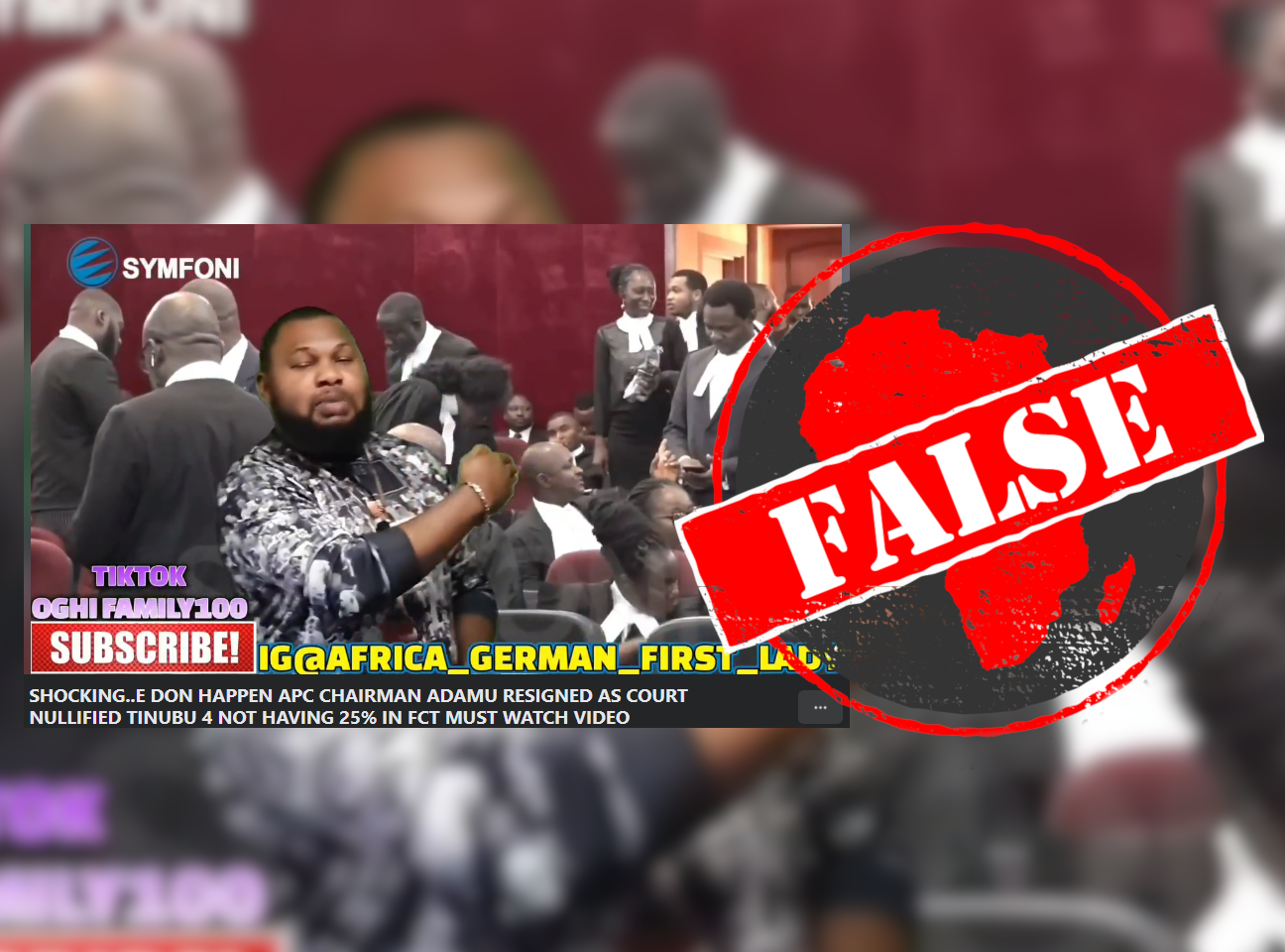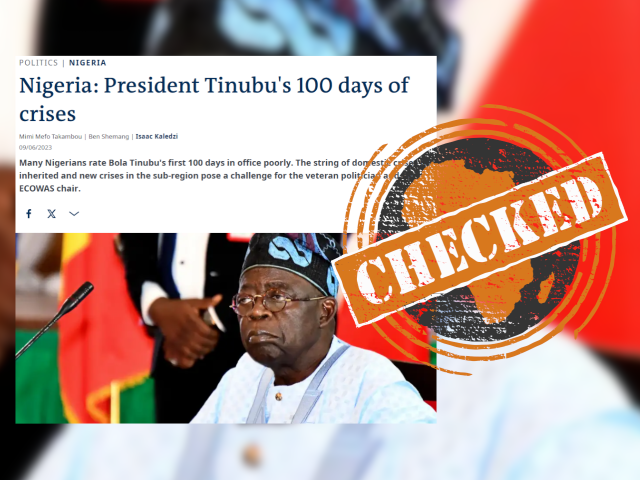IN SHORT: Videos circulating on Facebook claim that the chair of Nigeria’s ruling party resigned because the court has nullified the election of president Bola Tinubu. But the court hasn’t ruled on the matter and the resignation is unrelated.
A video posted on Facebook claims that Abdullahi Adamu’s resignation on 16 July 2023 is linked to the court battle over the outcome of the February presidential election.
Adamu resigned from his position as chairperson of Nigeria’s ruling party, the All Progressives Congress (APC), and this was widely reported in the media.
According to the video, Adamu stepped down after he realised that the Presidential Election Petition Court had nullified the election of president Bola Tinubu because Tinubu did not secure 25% of the votes cast in the Federal Capital Territory (FTC), Abuja.
Speaking in Pidgin, a man in the 17 July video says Adamu quit to dissociate himself from “Tinubu’s atrocities”, including “intimidating and bribing the judges who are set to nullify his election”.
“Finally Court don Conclude Judgement to Remove Tinubu! APC National Chairman don sharply resīgn,” reads the caption of a different video, which makes a similar claim.
The caption, written in Pidgin, translates to: “Finally, the court has concluded to remove Tinubu. APC chairman quickly resigned.”
The commentator in the second video claims there has been chaos in the APC over developments in the case brought by Labour Party’s presidential candidate, Peter Obi. The man speaks in Igbo, the language widely spoken in the southeast of Nigeria. Obi is from this geopolitical zone.
The APC’s Tinubu was elected Nigeria’s president in February, with Obi coming in third. However, Obi won the FCT, with 59% of the votes, while Tinubu came second in the FCT, with 19%.
Nigeria’s constitution says that in a multi-candidate presidential election, the winner must have the highest number of votes overall and at least one quarter of the votes in two-thirds of the 36 states and the FCT.
The videos appear in other Facebook posts with similar claims here, here, here, here, here and here.
Has the petition court nullified Tinubu’s election? And is that the reason Adamu resigned as APC chair? We checked.

Court yet to rule at time of publication
The tribunal began sitting in May to look at election petitions. These included petitions by Obi and Atiku Abubakar, the presidential candidate for the Peoples Democratic Party.
According to the law, the election tribunal “shall deliver its judgment in writing within 180 days from the date of the filing of the petition”.
The petitioners and the defence have delivered their closing arguments. Judgement is expected to be delivered in August.
It is false to claim that Tinubu’s win has been nullified.
Resignation unrelated
According to media reports, Adamu was made to resign following a crisis in the APC, which has been attributed partly to his frosty relationship with Tinubu.
Adamu supported former senate president Ahmed Lawan ahead of the party’s presidential primary, which was eventually won by Tinubu.
The crisis, which led to Adamu’s resignation, emanated from his refusal to recognise national assembly principal officers selected by the senate president and the speaker of the house of representatives, with Tinubu’s consent.
Adamu was opposed by several leaders of the party, including state governors, legislators and some members of the national working committee, which he leads.
His meeting with Tinubu to resolve the crisis did not help him retain his seat as chairperson of the party.
There is no evidence the resignation has anything to do with developments at the election tribunal.
Republish our content for free
For publishers: what to do if your post is rated false
A fact-checker has rated your Facebook or Instagram post as “false”, “altered”, “partly false” or “missing context”. This could have serious consequences. What do you do?
Click on our guide for the steps you should follow.
Publishers guideAfrica Check teams up with Facebook
Africa Check is a partner in Meta's third-party fact-checking programme to help stop the spread of false information on social media.
The content we rate as “false” will be downgraded on Facebook and Instagram. This means fewer people will see it.
You can also help identify false information on Facebook. This guide explains how.




Add new comment